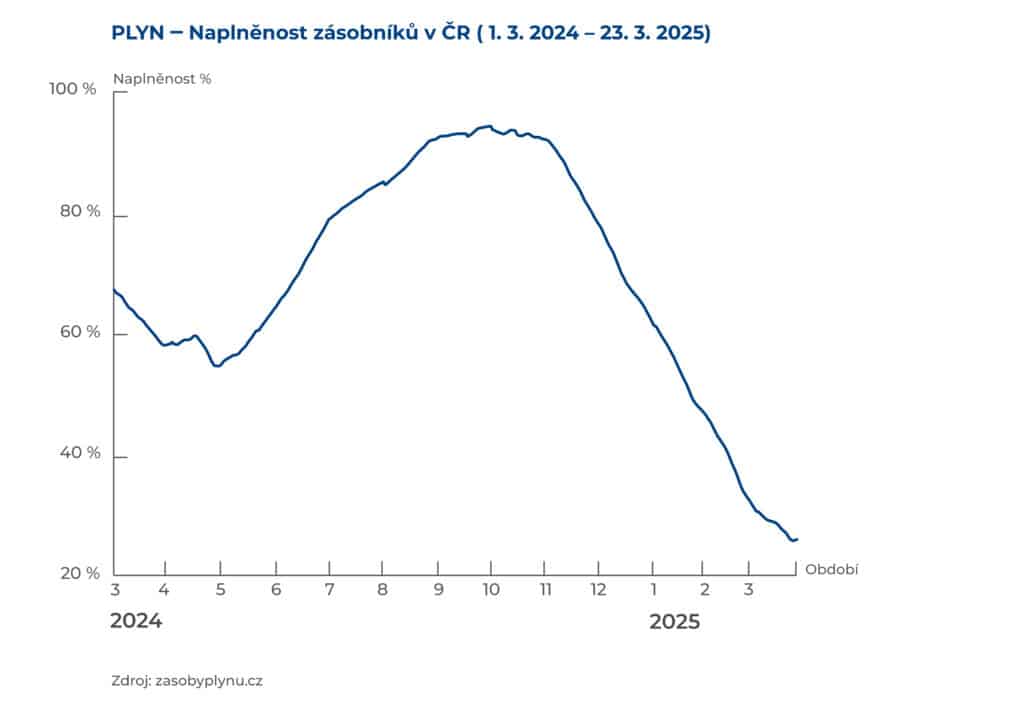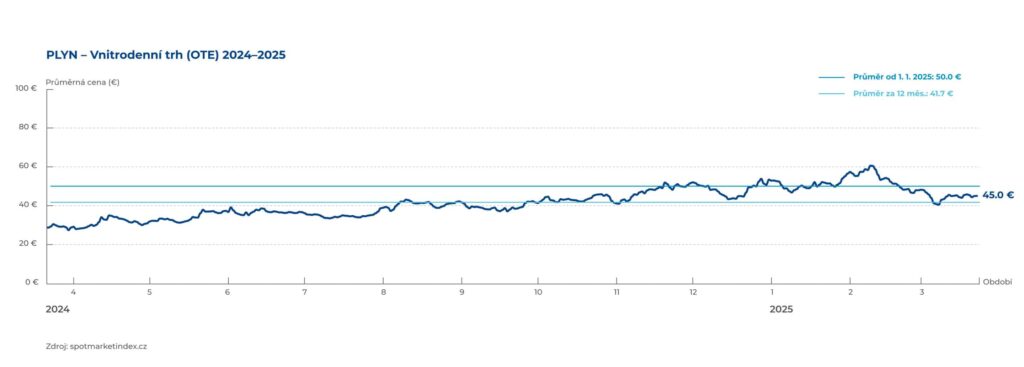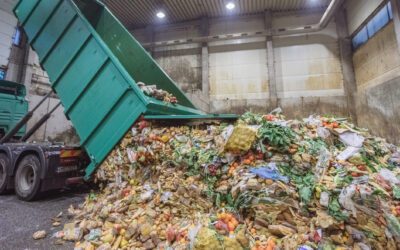Europe is facing growing uncertainty in natural gas deliveries, exacerbated by lower gas supplies in recent months. The cold winter has once again exposed the fragility of the current energy system, which still relies largely on scarce and geopolitically unstable resources. Meanwhile, the current situation in the natural gas market shows that the transition to sustainability is not only essential for decarbonising the sector, but also for strengthening its self-sufficiency. Biomethane can be one of the key elements of this transition.
Depleted reserves of cheaper gas, which used to flow through Ukraine to the Czech Republic, instability on the energy market and other geopolitical risks in key transit regions. All this makes natural gas supplies in Europe less predictable. In our country, storage capacity is about 34% full, but part of this capacity is owned by neighbouring Slovakia. Natural gas for consumption in the Czech Republic is thus even at 26% of storage capacity, a significant drop compared to last year. Back then, they were more than 30 percentage points higher. At current consumption, the current reserves would last us for about 40 days.

The European Commission is proposing to extend the obligation for Member States to fill their gas storage to at least 90% of capacity before winter to ensure that there is enough gas to meet increased demand during the season, for the sake of energy security. This obligation was introduced in 2022 in response to the energy crisis caused by the reduction in gas supplies from Russia. However, some countries, including Germany, France and the Netherlands, have now expressed concerns that strict storage requirements may distort market principles and lead to higher prices. The question therefore remains how any regulation would be set up.
“Natural gas is now defined as a transformational fuel for the power sector when coal-fired power plants are being shut down, so it will logically grow in demand. We can expect demand for gas from RES to grow all the more, which will be supported beyond this transition phase. Supply will depend mainly on the readiness of the countries concerned. While the Czech Republic’s gas consumption is still almost 100 per cent covered by natural gas, in Denmark biomethane already accounts for about a third,” says Petr Voltr, Head of EFG Commodities.
Thanks to local production, biomethane increases the energy self-sufficiency and security of the country in which it is produced. Under the REPowerEU plan, production in the European Union should increase to 35 billion cubic metres by 2030. So far, €25 billion of private investment has been earmarked for this purpose, to be used to install 950 new plants by 2030. Their operation is expected to increase the continent’s biomethane production capacity by up to 6.3 billion cubic metres per year.

“In the Czech Republic, we produce approximately two million tonnes of biodegradable waste annually, which creates the potential for the operation of about 66 biogas plants with a total annual production of 100 million cubic metres of biomethane. This would enable us to cover the energy consumption of about 130,000 households,” adds Barbora Formánková, spokesperson for the Energy financial group.
The renewable gas market in the Czech Republic started to awaken especially at the turn of 2023 and 2024, i.e. at the time of the ongoing energy crisis. Investors and plant owners were mainly constrained by unprepared legislation, which is still being developed, and an insufficiently functional state support system. This is one of the reasons why EFG, as the domestic market leader, did not, for example, receive any subsidies for biomethane. However, there has also been considerable progress in these areas. In 2026, a new system of operational support for biomethane stations is due to come into force, based on an amendment to the Energy Act known as lex RES III. This is likely to lead to further development of the renewable gas sector. Operating support is to be allocated through auctions, which will ensure a fairer distribution of funds and also make conditions more transparent for investors.

